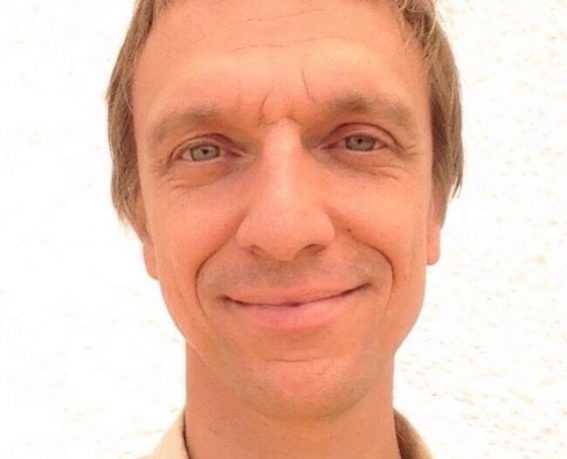

Homeopathy or homeopathic medicine is a medical philosophy and practice based on the idea that the body has the ability to heal itself. Homeopathy originated in late 18th century Germany and has been widely practiced throughout Europe.
Homeopathy, or homeopathic medicine, is a medical philosophy and practice based on the idea that the body has the ability to heal itself. Homeopathy was established in the late 1700s in Germany and has been widely practiced throughout Europe.
Homeopathic medicine sees the symptoms of illness as normal responses of the body as it attempts to regain health.
Some people have used homeopathy to maintain health and treat a wide variety of chronic conditions, including allergies, atopic dermatitis, rheumatoid arthritis, and irritable bowel syndrome. They have also used it to treat minor injuries such as cuts and scrapes as well as muscle strains or sprains.
Homeopathic treatment is not considered appropriate for conditions such as cancer, heart disease, serious infections, or emergencies.


Although we have commented that homeopathy treatments are accessible, the truth is that they are not covered by public health and being private, in many cases they are not covered by private health insurance either.
Homeopathy treats the symptoms from the knowledge of the individual in general. Starting from the information located in the deepest; at the level of spirituality, emotions and finally the physical, the professional creates an exact image of the interior of the patient.
The success of homeopathic treatment lies in the professional's ability to decode the components in that image to choose the most accurate substance with respect to the patient's condition.
My method of diagnosing and indicating the appropriate substance (only one among more than five thousand) is very effective, because I analyze the symptom from the unit and connection with the universal, since the most effective homeopathic substance for each person is found in nature.








Christian was born Hanover, Germany. He has three daughters and has lived with his wife in Tenerife since 2005.
He studied Korean Acupuncture with one of the most renowned teachers in the West, Daniel Shin. He studied constitutional homeopathy through the teachings of Roberto Marzetti.
After decades of practicing Shabda meditation according to the Sant Mat philosophy and as a disciple of the great teacher Rajinder Singh, he developed the Ancestral Diagnosis. This diagnosis allows you to arrive with the highest accuracy at the appropriate treatments in acupuncture as well as in homeopathy and naturopathy. He has finished the first 6 modules of the Chinese energy medicine training “Yuen Method” with kung fu master and Dr. Kam Yuen.
In Germany, he studied Physiotherapy at the University Hospital Hannover (MHH/Medizinische Hochschule Hannover) and at the Rehabilitation clinic Annstift e.V. from the same city. He is registered as a physiotherapist in the Official College of Physiotherapists of the Canary Islands. In complicated cases, his way of being able to prescribe the appropriate remedies promotes the rapid healing of the patient.
Many people who have not found a solution elsewhere have found it through their treatment. Precise and specialized application at several levels at once makes health restorable.

Each treatment is individualized for each patient. It depends on the symptoms and not the disease.

The remedies are natural, there is no possibility of creating addictions or causing side effects.

Homeopathic treatments are safe as they have been evaluated or tested on humans and not on animals.

The treatment and remedies have satisfactory effects in treating acute and chronic health problems. In fact, the treatments work on those diseases that cannot be cured with conventional medicines.

It is easy for the most reluctant patients to take homeopathic medicines. Children readily agree to take them. Solutions are often dispensed with sugar pills.

Since they are natural, they are safe for pregnant women, babies, children, sensitive adults, and even the elderly.
To ensure a relaxing and enjoyable experience, we've answered some of the questions that guests frequently ask. Reviewing these questions will help you understand homeopathy.
The term Homeopathy usually refers both to the therapeutic method that uses homeopathic medicines and, in general, to the homeopathic medicines themselves. A simple approach to Homeopathy is the definition proposed by the RAE and which qualifies it as a "healing system that applies to diseases, in minimal doses, the same substances that, in larger quantities, would produce symptoms equal to or similar to those in a healthy man. those who are trying to fight”. Other definitions explain Homeopathy as a "therapeutic method that clinically applies the phenomenon of similarity and uses medicinal substances in low doses or in high dilutions" (). As the White Book of Homeopathy points out, the term has traditionally included a large number of definitions based on three basic principles set forth by Hahnemann in 1796 ().
Homeopathy participates in the disease process, helping the body to react and recover balance through the stimulation of defense and regulation mechanisms. It is a therapy that focuses from the biopsychosocial point of view: it understands the disease in the vital context of each person, being the individual and his way of getting sick the center of the study and not only his disease. Homeopathy does not act against the symptom to suppress it, but rather it acts favoring the natural possibilities of the organism, directing it towards an adapted response against the aggression or disorder that it has produced in the organism.
There is only one medicine, and homeopathy is therapeutic, one more tool at the service of professionals and patients, perfectly complementary to other therapeutic strategies. In this way, Homeopathy can be used exclusively for certain pathologies, especially acute ones (flu, cough, diarrhea, bruises, etc.), or as a complement to conventional treatments, especially in patients with chronic pathologies (allergies, dermatitis, asthma, anxiety, etc.) or in recurrent infections (cystitis, infantile otitis, etc.).
There is only one medicine and Homeopathy is one more tool within it, as is conventional (allopathic) pharmacology. Each health professional must decide which is the best treatment for each patient, knowing that Homeopathy is compatible with other treatments.
Thanks to the safety profile of homeopathic medicines, they can be administered from the moment the child is born (even during pregnancy and childbirth) even in polymedicated elderly people.
In general, homeopathic medicines can be taken together with any other pharmacological treatment that the patient is following, for the same condition or for a different one depending on the case. In any case, it is always advisable to inform the doctor and the pharmacist of all the treatments that are being followed.
Yes, homeopathic treatments can help regulate the body and help it react better to external aggressions, for example in the case of allergies.
Yes, it is possible to take homeopathic medicines during pregnancy, always under the supervision of a specialist, who will be able to recommend the most appropriate treatment for each case. In fact, homeopathic medicines are of great interest during pregnancy, not only for conditions typical of pregnancy (hemorrhoids, nausea...) but also for general conditions that may manifest during the gestation period (flu-like states, cough, sore throat). , allergies…); for preparation for childbirth (previous anxiety, for example), childbirth (help in dilation...) and immediate postpartum (tiredness, help with recovery, problems during breastfeeding...).
Like all medicines, homeopathic medicines are exclusively for sale in pharmacies.
The term Homeopathy usually refers both to the therapeutic method that uses homeopathic medicines and, in general, to the homeopathic medicines themselves. A simple approach to Homeopathy is the definition proposed by the RAE and which qualifies it as a "healing system that applies to diseases, in minimal doses, the same substances that, in larger quantities, would produce symptoms equal to or similar to those in a healthy man. those who are trying to fight”. Other definitions explain Homeopathy as a "therapeutic method that clinically applies the phenomenon of similarity and uses medicinal substances in low doses or in high dilutions". As the White Book of Homeopathy points out, the term has traditionally included a large number of definitions based on three basic principles set forth by Hahnemann in 1796 ().
Homeopathy participates in the disease process, helping the body to react and recover balance through the stimulation of defense and regulation mechanisms. It is a therapy that focuses from the biopsychosocial point of view: it understands the disease in the vital context of each person, being the individual and his way of getting sick the center of the study and not only his disease. Homeopathy does not act against the symptom to suppress it, but rather it acts favoring the natural possibilities of the organism, directing it towards an adapted response against the aggression or disorder that it has produced in the organism.
There is only one medicine, and homeopathy is therapeutic, one more tool at the service of professionals and patients, perfectly complementary to other therapeutic strategies. In this way, Homeopathy can be used exclusively for certain pathologies, especially acute ones (flu, cough, diarrhea, bruises, etc.), or as a complement to conventional treatments, especially in patients with chronic pathologies (allergies, dermatitis, asthma, anxiety, etc.) or in recurrent infections (cystitis, infantile otitis, etc.).
There is only one medicine and Homeopathy is one more tool within it, as is conventional (allopathic) pharmacology. Each health professional must decide which is the best treatment for each patient, knowing that Homeopathy is compatible with other treatments.
Thanks to the safety profile of homeopathic medicines, they can be administered from the moment the child is born (even during pregnancy and childbirth) even in polymedicated elderly people.
In general, homeopathic medicines can be taken together with any other pharmacological treatment that the patient is following, for the same condition or for a different one depending on the case. In any case, it is always advisable to inform the doctor and the pharmacist of all the treatments that are being followed.
Yes, homeopathic treatments can help regulate the body and help it react better to external aggressions, for example in the case of allergies.
Yes, it is possible to take homeopathic medicines during pregnancy, always under the supervision of a specialist, who will be able to recommend the most appropriate treatment for each case. In fact, homeopathic medicines are of great interest during pregnancy, not only for conditions typical of pregnancy (hemorrhoids, nausea...) but also for general conditions that may manifest during the gestation period (flu-like states, cough, sore throat). , allergies…); for preparation for childbirth (previous anxiety, for example), childbirth (help in dilation...) and immediate postpartum (tiredness, help with recovery, problems during breastfeeding...).
Like all medicines, homeopathic medicines are exclusively for sale in pharmacies.
Input your search keywords and press Enter.